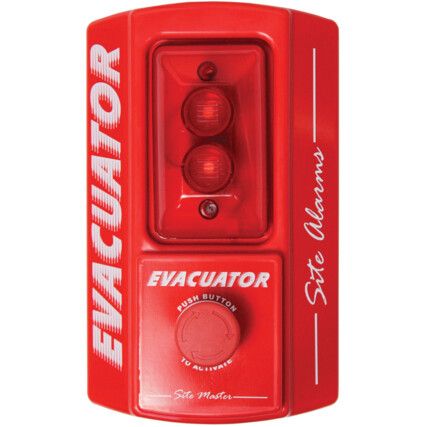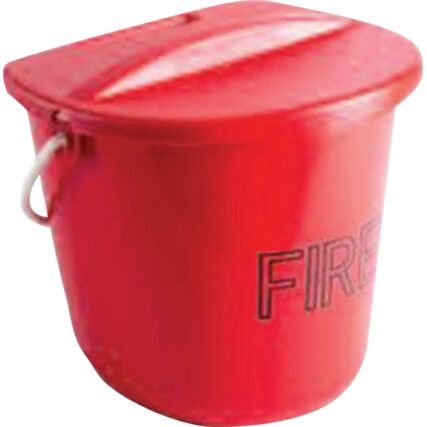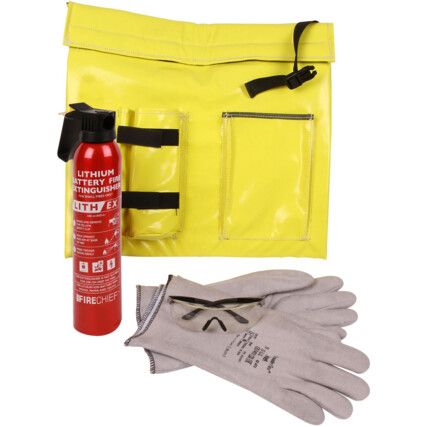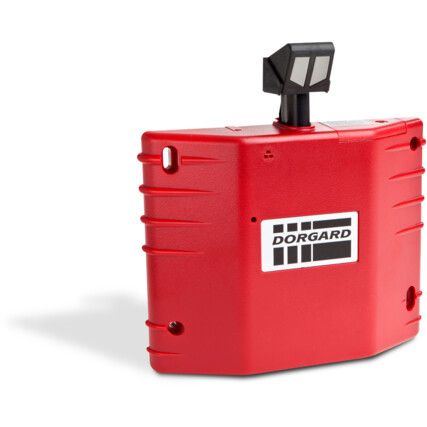Fire Prevention & Protection Equipment
Stock up on fire prevention products and protection equipment online at Cromwell. We stock a wide selection of fire prevention products, including smoke alarms, fire blankets, fire marshall kits and site evacuator alarms. Keep your employees safe with products from market-leading brands, like Moyne Roberts®, Kidde®, Fixfire® and our own brand, Matlock®.
What is fire prevention?
Fire prevention can be defined as a system put in place to actively prevent or respond to a fire in a way that prevents injury to employees and minimises damage to a building. As part of a fire prevention system in a workplace, a series of products can be put in place to sound the alarm in the case of a fire, ensure the safe evacuation of employees and visitors, and, if the fire is low risk, to extinguish it using a fire blanket or water.
When is fire prevention used?
Fire prevention is an essential part of an employer's responsibility. Fire safety risk assessments should be periodically conducted and acted upon to reduce the risk of fire-related injury or death. Control measures such as fire detection and alarms, as well as the means to extinguish a fire, should be put in place. While plans, such as clearly marked evacuation routes, and fire exits with appropriate signage should be applied and training is given to employees to ensure a consistent response in the event of a fire.
Considerations when choosing fire prevention products
• Coverage - when fitting smoke alarms, ensure they cover all areas of the premises so that no fire goes unnoticed.
• Sizes - ensure you consider size when choosing fire blankets and extinguishers.
• Signage - some doors may require multiple signage, while others may only need a single Fire Exit sign.
• Fire wardens - keep fire wardens visible with labelled hi-vis jackets to help with evacuations.
Fire prevention jargon buster
Compliance with fire safety regulations is important business. So, to keep you up to date with UK legislation, we've given a brief explanation of the requirements for general fire safety.
What is The Regulatory Reform (Fire Safety) Order 2005?
This piece of UK law (also applicable in Wales) outlines requirements for fire safety in all workplaces. It outlines the legal requirements of general fire prevention, all of which are the responsibility of the nominated person:
• Fire Risk Assessment - If you have four or more employees, your FRA must be a written piece of official documentation for your premises. Similar to a Safety Risk Assessment, it must identify fire risks, develop an action plan if existing safety procedures do not adequately protect employees, record all findings, and be the foundation for continued assessments in the future.
• Fire protection equipment - This section of legislation stipulates that appropriate equipment, such as extinguishers, safety blankets or hoses are put in place and are regularly maintained.
• Fire safety signage - The appropriate signage must be placed in visible areas around the building, including the IDs for each extinguisher, fire exit signs, and fire action signs which identify the evacuation route and assembly point for each area.
• Fire alarms - This stipulated that all businesses must fit and regularly maintain and test an appropriate fire detection system.
• Emergency lighting - This lighting must be provided to illuminate fire escape signage, open areas and high-risk areas should normal lighting fail in the event of a fire.
• Fire safety training - All employees must receive training on fire safety procedures. This should be refreshed frequently and tested using fire drills.
FAQs
What is a passive fire protection system?
Passive fire protection is the structure of a building, including fire doors, ceilings and walls. Their design slows or prevents the spread of fire and smoke to give as much time as possible for the safe evacuation of employees.
What is a Class C fire?
A Class C fire is a fire caused by a fault in live electrical equipment, such as damaged wires on a plug socket or an overloaded fuse on an electrical panel. Class C fires can only be extinguished with a dry powder extinguisher, which should only be used in a well-ventilated area.




